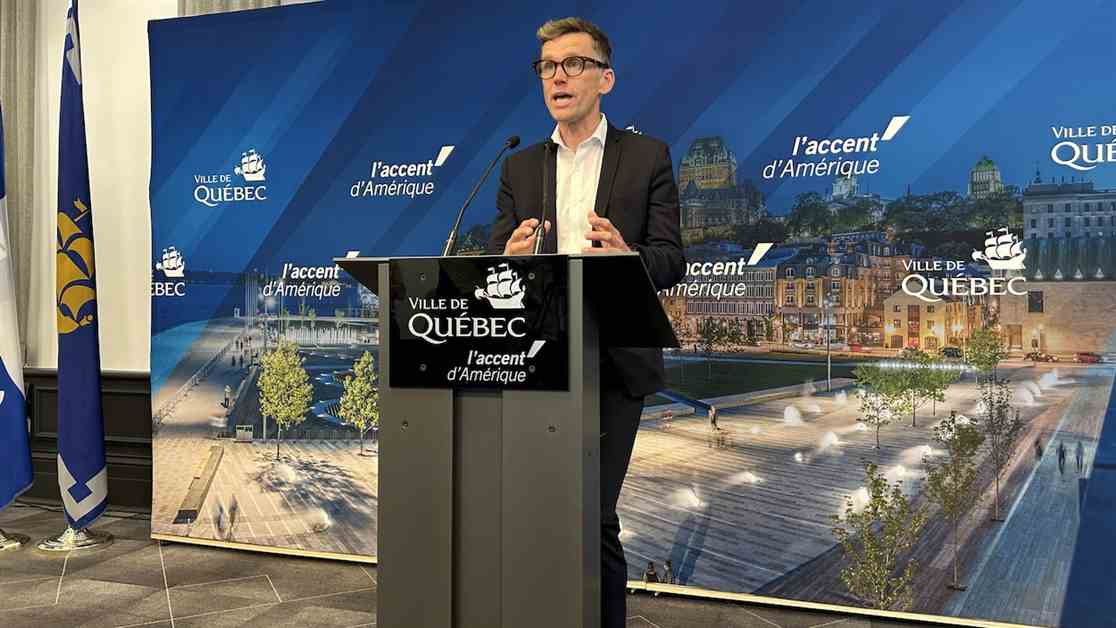City mayor Bruno Marchand fully supports the $15 billion transportation plan unveiled by CDPQ Infra, the infrastructure subsidiary of the Caisse de dépôt et placement du Québec. He urges the Legault government to quickly announce its intentions, stating, “We are impatient, we want things to move fast.”
After six months of work, CDPQ Infra presented a $15 billion public transportation plan over 15 years. The proposed network of about 100 kilometers includes 28 kilometers of tramway to be built in several phases, multiple bus rapid transit (BRT) lines, and 30 kilometers of reserved lanes on both sides of the river.
According to Mayor Bruno Marchand, the 140-page report presented by CDPQ Infra unequivocally demonstrates the region’s vast public transportation needs. He emphasizes the importance of uniting and moving away from hesitations and divisions.
Marchand is pleased that the project includes multiple phases over 15 years, emphasizing the need for long-term public transportation planning. He hopes to start construction in 2025 for service by 2030.
The Quebec government is expected to hold a press conference by the end of the week to comment on CDPQ Infra’s mobility plan. Infrastructure Minister Jonatan Julien praised the experts’ work, providing Quebec City with a clear vision for public transportation.
Julien particularly appreciates the proposal to shorten tramway cars, potentially saving 20% to 25% on infrastructure costs. Despite the current $11 billion deficit, the Finance Minister believes Quebec has the financial means to implement the entire proposed plan.
Mayor Marchand recently spoke with Premier François Legault’s team and feels confident about the government’s commitment to moving forward with the project. He is open to CDPQ Infra overseeing the project, similar to the REM in Montreal.
The mayor insists that respecting the city’s autonomy regarding costs along the route is crucial. Marchand believes the investment is necessary for Quebec City’s economic vitality and anticipates billions in projects resulting from the construction of a structuring transportation network.
Various advocacy groups, including J’ai ma passe and Québec mérite mieux, view CDPQ Infra’s conclusions positively. They see the plan as essential for Quebec City’s future development and economic growth.
While some concerns remain, such as the reliability of the battery hybrid system in winter, the removal of overhead wires, and modifications for vehicle passage, advocates urge a thorough and cautious approach to ensure the project’s success.
Overall, the support and optimism surrounding the transportation plan indicate a significant step forward for Quebec City’s public transit infrastructure.




